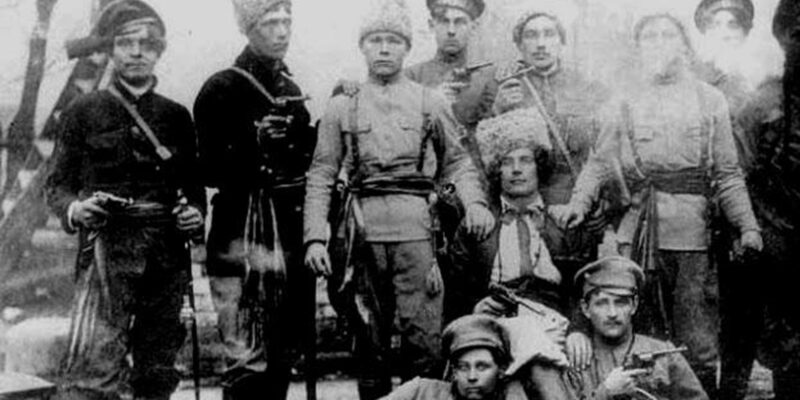Aleksandr Shubin. “The Makhnovist Movement and the National Question in the Ukraine (1917-1921)”

Аleksandr Shubin. “The Makhnovist Movement and the National Question in the Ukraine (1917-1921)”
This is a brilliant chapter of the book Anarchism and Syndicalism in the Colonial and Postcolonial World (1870-1940) [eds. Steven Hirsch and Lucien van der Walt, Brill, 2010] in which Shubin discusses the anarchist movement led by the Ukrainian Nestor Makhno from Tsardom’s collapse in 1917 to its crushing by Lenin and Trotsky in 1921. Shubin tells the reader that early Russian anarchism grew out of the narodnik movement of the 1860s and 1870s, but was completely destroyed by the Tsarist police, and was only revived a generation later, with strongholds, especially in the Ukraine. Literate Russians (in the broad vague sense) were certainly aware of the Russian roots of contemporary anarchism—Bakunin and Kropotkin—but their traces are only dimly visible in this account. The uniqueness of Makhno is that he came to power in large parts of the Ukraine thanks to an organised armed force which he led with brio. The core of this armed base may explain why he was usually hostile to Ukrainian nationalists, who were notoriously anti-Semitic as well as navel-gazing. The men and women who comprised the Makhnovist army were ethnic Ukrainian and other peasants, some urban workers, as well as local Jews and even a substantial number of Cossacks, whose own ethnic origins were a wild mélange of different linguistic and ethnic groups. (Yet the Tsars had often used the Cossacks for pogroms against the Jews). Like the movements in China, Cuba, Egypt, Ireland, Peru, South Africa and elsewhere, it sought to organise beyond nationalist categories. Makhno’s army was partially made possible by Berlin’s pulverization of the Tsar’s armies, ending with Lenin’s and Trotsky’s signing the humiliating treaty of Brest-Litovsk to prevent further German incursions, especially in the Ukraine. Germany’s own collapse towards the end of 1918, let loose a vast swarm of men with weapons and military experience in the old empire, for Makhno, as well as the Bolsheviks and Whites, to recruit. The immediate onset of the Civil War gave Makhno further room to manoeuvre, between Reds and Whites—for a while. Shubin gives two striking examples of how Makhno used his military power beyond the battlefield. Anti-Semitic killers, rapists and looters, even when they appeared in his own army, were liable to execution out of hand. At the same time, Makhno ordered a massive distribution of land to the peasants and agricultural labourers well before the Bolsheviks passed similar decrees. Without military power, this distribution was scarcely possible. Only in Manchuria in the late 1920s amongst the Korean forces, and then in the 1930s, in Civil War Spain, did anarchism have comparable power and opportunities.
* Download the complete article here: Аleksandr Shubin – The Makhnovist Movement and the National Question in the Ukraine (1917-1921)

